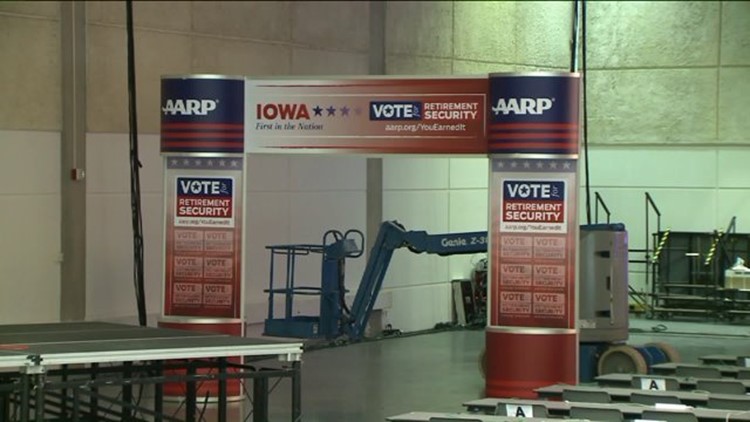Once every four years, presidential politics take over in Iowa. The good people of this Midwestern state are bombarded by candidates, phone calls, door knocks, signs and promises.
But Monday night is important for candidates seeking their party's nomination. It's the first time voters will weigh in after months of campaigning.
“It's our first real test of how these candidates are performing,” said Dr. Jennifer Dineen, a professor and researcher at the University of Connecticut.
Dineen says caucuses are very different process than what we do in Connecticut, where we have primary contests.
There are more than a dozen states that are caucus-only, several do a mix of caucuses and primaries, some do primaries only.
Iowa happens to be the first state to weigh in, and “it gives us a good sense of momentum,” said Dineen.
Think of a caucus as a town hall meeting. Almost 1,700 precincts will hold these gatherings across the state.
Republicans and Democrats caucus separately, but meet at the same time. But the way the parties operate are very different.
Republicans vote by secret ballot.
However, “the Democratic process is fairly complicated,” said Dineen.
The Democrats physically assemble in groups of candidates they support. If you support Hillary Clinton you stand in one area. If you support Bernie Sanders you're in another. For Martin O'Malley, you stand in a third section. These are called candidate preference groups.
What matters is percentage. How much support does each Democratic candidate get? A viable candidate must get 15 percent of each gathering for it to count.
So what do those results mean for the country?
“Iowa doesn't often pick the winner,” said Dineen.
The results aren't an end-all-be all for the election.
Bill Clinton, George H.W. Bush and Ronald Reagan all lost the Iowa caucuses, but won their party's nomination and then the presidency. Meanwhile, Mike Huckabee, Tom Harkin, and Richard Gephardt all came in first but did not get their party's nomination or presidency.
“Iowa does not tell us who the nominee is going to be, but it often tells us who the nominee is not going to be,” said Dineen.
Since 1972, neither the Democratic or Republican parties have had a nominee that placed below fourth in Iowa.
“More typically, the nominee places in the top three,” said Dineen.
In a nutshell, Iowa gives the country a good sense of how viable a candidate will be, but it's not all telling.
Next week it’s on to New Hampshire for the first primary of the election. Connecticut's primary is in April.



